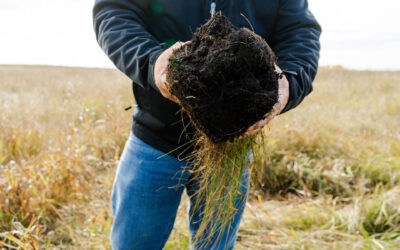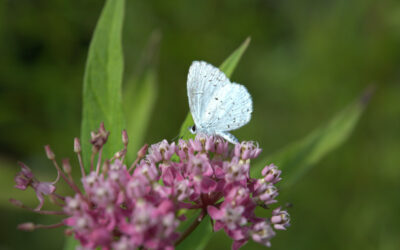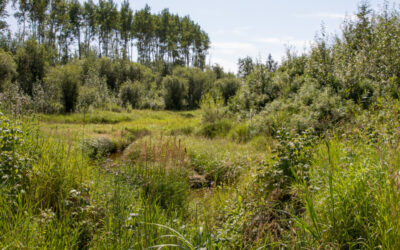Halting and reducing biodiversity loss by 2030 will require a robust and accountable National Biodiversity Strategy, urges Canadian environmental groups.

Toronto, ON – September 21, 2023 – Canadian environmental groups presented shared recommendations to the federal government on how Canada must act urgently to meet its global commitments to protect and restore nature under the Global Biodiversity Framework (GBF) agreed to at COP 15 in Montreal last December. The recommendations, which drew input from seventeen organizations, were submitted in advance of the New York World Biodiversity Summit where world leaders came together to discuss how they will successfully achieve the targets and objectives outlined in the Framework.
The adoption of the GBF is considered a historic accomplishment for conservation. Environmental groups want to ensure the promises made at COP 15 become robust strategies that will halt and reverse biodiversity loss and safeguard nature into the future.
The recommendations include (but are not limited to):
- Aligning actions across government departments
- Securing sufficient, long-term funding to support implementation
- Removal of harmful subsidies and incentives that support activities that contribute to biodiversity loss
- Centering Indigenous-led conservation
Long-term commitments from all sectors will be needed to address the many activities that threaten biodiversity and jeopardize the future, but federal, provincial, and territorial governments will have an important role to play.
In the coming months, Canada will draft its 2030 Biodiversity Strategy to guide GBF implementation. Protecting nature must be a priority and environmental groups expect Canada to be leading the charge. Upcoming milestones like the fall economic statement are opportunities for Canada to rise to the occasion.
“The over 1,600 active ALUS farmers and ranchers managing 48,000 acres of new nature have demonstrated that farmers and ranchers have the skills, land and knowledge to be part of the solution to biodiversity loss,” says Bryan Gilvesy, CEO, ALUS. “To be successful, the National Biodiversity Strategy will need to recognize the important contribution farmers and ranchers can make to reversing biodiversity loss by 2030 and commit to investing in farmer-delivered nature-based solutions.”
Read the full ENGO joint recommendations.
The organizations contributing to this joint submission include ALUS, Birds Canada, Canadian Parks and Wilderness Society, Canadian Wildlife Federation, The ChariTree Foundation, David Suzuki Foundation, East Coast Environmental Law, Ecology Action Centre, Ecojustice, Environmental Defence, Nature Canada, Natural Resources Defense Council, Nature Trust of New Brunswick, The Wilderness Committee, Wildlife Conservation Society Canada, West Coast Environmental Law, World Wildlife Fund Canada.
About ALUS
ALUS is a national charitable organization that delivers whole-farm nature-based solutions to biodiversity loss and climate change on behalf of governments, corporate investors and organizations for the benefit of current and future generations. Through its farmer-led, community-developed program, ALUS engages farmers and ranchers in the production of new acres of nature that produce ecosystem services, like carbon sequestration, water filtration and retention, and healthy wildlife habitat.
ALUS currently provides expertise, technology resources, and direct financial support to 38 ALUS communities across six provinces where more than 1,600 farmers and ranchers actively manage nature-based solutions on their land. ALUS delivers tangible, reliable and measurable acre-based outcomes for its investors by strategically allocating investor capital to nature-based projects in the communities where they operate.



